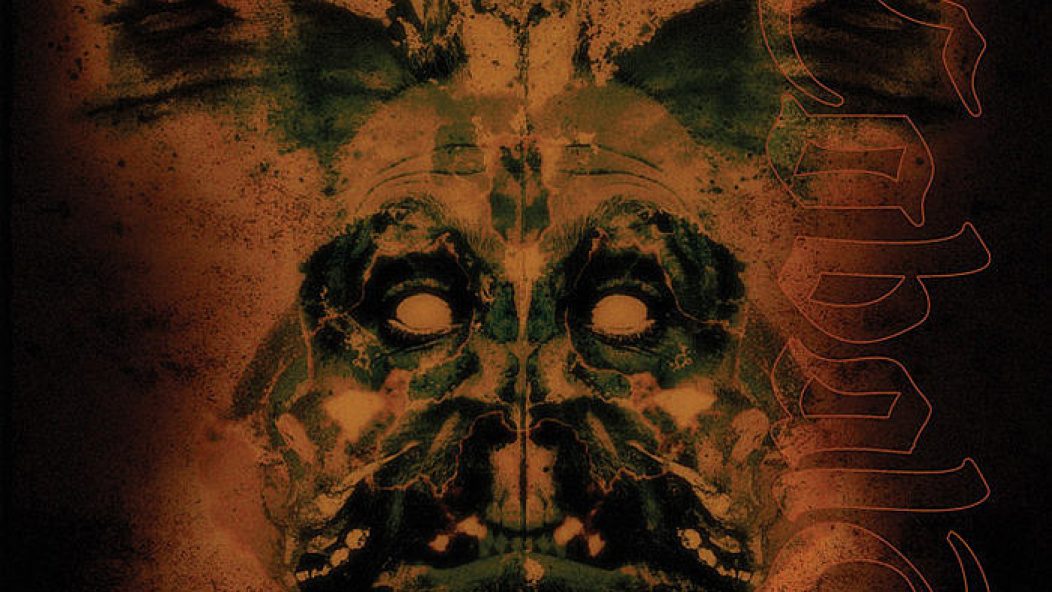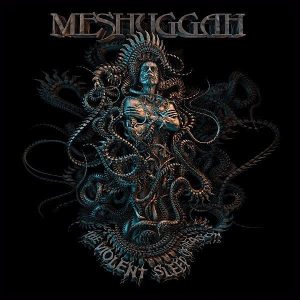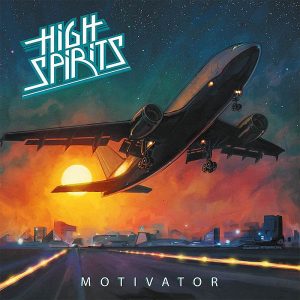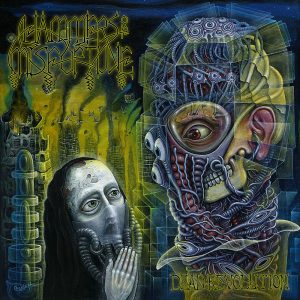
Top Albums of 2016, by Joseph Schafer

…
Anger, anger everywhere and not a spare moment to think.
That’s how I’ll remember 2016.
This was the year our heroes failed us. They relapsed into the worst and most disgusting parts of their personalities. They let their own need for acknowledgement separate them from what made them strong. They buckled through no fault of their own under the weight of untimely death or worse, commerce. They died in startling numbers, and the affirmation of their mortality made our own seem deeper, somehow more than totally inevitable and inescapable. Which is pretty metal, if you think about it, but not what feels good or right or just when the world at large seems to be fulfilling some sort of obscure doomsday prophecy.
But at the same time, listening to music in 2016 reminded me of watching a garden come into its full springtime bloom. The last time it felt so good to just taste new metal records, to me, was 2008. Tired trends ebbed, great bands continued to be great, old favorites returned unexpectedly, and young guns punched above their weight. Fuck, Metallica did a by all accounts good record! Maybe best, perennial tour headliners all seemed to just take a break and let their would-be successors have a little breathing room.
The optimism in those observations runs counter to the pessimism that the previous news events made me feel. And when they rub up against one another, what I’m left with is confusion. My mind is in disarray, and it makes thinking about metal, and especially the people involved in the music, a tiresome chore. But at least I know where it comes from:
People are ill-equipped to hold onto two narratives at once. We don’t like the world we live in to contradict itself, that’s why people read the news, be that music news or any other kind. Media informs our lives, but it also gives shape and rigidity to the world around us, it makes decision making easy.
But if 2016 proves anything, it proves that the dominant narrative is not solvent or binding. That thought had been swimming under me for a while, but it didn’t surface completely until November Eighth. A whole lot of people didn’t realize how wrong they were about the stories Americans believe, and then continue to tell themselves.
We’ve talked about the election a lot in these introductory essays, and the writers on staff did so without consulting one another. We all went there together of our own accord, probably just because we write about music and music is art (yes) and all art is personal (yes) and everything that is personal is political (yes), and that all metal is political regardless of its creators’ intents (YES).
We will continue to talk about art politically, because personal politics become rationales, and rationales have real-world consequences. Listeners who try to disassociate themselves from these facts, don’t want to face the consequences of fandom in a commercial world, but that’s cowardice. It’s not very metal.
I’m currently reading ‘Stories of Your Life and Others’, the collection of short stories by author Ted Chaing. One of these stories was just adapted as the film ‘Arrival’. In that story, humans encounter beings who experience every moment of their lives at once instead of in sequence, and some of that ability is transferred to human beings. I like that idea in the context of music listening. Trying to experience music all at once uncouples an album from its influences. Imagine listening to a record and not thinking about its relationship to that artist’s previous albums. Imagine listening to an album without an internal voice saying “this sounds like…” Imagine if every time you heard a song was just like the first time, and the first time you heard a song you knew everything about it.
Of course we can’t live our lives all at once like the beings in Chanig’s story, but good criticism can take us part of the way there. That’s why we write anniversary pieces. That’s why we write detailed critiques of a song before we post the stream. That’s why we cover metal from outside the American-European paradigm. The goal of this site right now is to offer a kind of overhead perspective to your listening experience.
Even the perspective we offer through our combined viewpoints and knowledge has limits, such as the time it takes to tell those narratives just under the surface. There’s things we only touched on that have huge weight, like how 2016 was the best year for melodic death metal in a decade, or how we’re still in the middle of a grindcore renaissance that no outlets, ourselves included, pay enough attention to.
If anything, that’s just proof that in these dark times, metal the art form continues to flourish and diversify. It’s tempting to see the genre repeating variations on a theme, churning out more bands with the same couple members emulating things we’ve already heard. That’s a true story, but it’s just the story on the surface. Deeper, and even in these darkening times, there are new sounds to explore and new heroes waiting to surface. We’re going to keep plumbing those depths and telling those people’s stories.
…

We live in a post-Djent society, and in that world Meshuggah have finally entered full dad rock mode. Behold their face-palming puns, direct from “MonstroCity”, pale shadows of their “New Millennium Cyanide Christ” music video sense of humor. But with middle aged sag also comes comfort—no more air-locked studio sounds, just live jamming. And live jamming is where Fredrik Thordendal shines. The blurred lines left in the wake of the “Bleed” beat are now clear, Tomas Haake is back in the middle of the mix, and Thordenal has room to open up and rip. He laid probably his best solos down here. In the way ObZen was Haake’s album, the Violent Sleep of Reason is Thordendal’s. The former has better tunes, but in 2008 it was at #1. The latter’s a steadier and hotter ride, though.
Listen here

I listen to metal because it makes me feel good. It satisfies the part of the best described by the word “soul”, even though that word has connotations I don’t always like. That said, listening to metal doesn’t always make me feel like I am having fun. Listening to Striker in 2016 feels like having more fun than I know what to do with. When Stand in the Fire pumps through my sound system, my Toyota Corolla feels like a Porsche Spyder. No, I’ve never actually driven a Spyder, but I’ve never been listening to music when Dokken was relevant, either and this Canadian outfit sounds like they care as deeply for Tooth and Nail as I do, so everything’s relative, yes? The feeling matters more than authenticity, and we all need to lighten up. Their last album, 4City of Gold seemed more gold-plated to me, but the when the sax solo to “Out for Blood” kicks in, I think: precious metal.
Listen here.

We live in the second or third great age of true doom metal, depending on how you count (and what counts as doom). 2016 brought three gifts from veterans deserving greater exaltation: Spiritus Mortis, Lord Vicar and Goatess, the latter two featuring vocals by Kristian Lindstrom. For my money, Purgatory Under New Management is the best of the bunch only because it puts Lindstrom front-and-center. He flosses all over this album, with the exception of one strange instrumental interlude. The riffs ride the same post-Iommi wave that a lot of Candlemass does, albeit with a little less panache, but that just leaves Lindstrom more room to work his magic. I’ve had the chorus in “Good Moanin’” stuck in my head for months, ditto for “Silent War”. Saint Vitus keeps touring with the wrong vocalist.
Listen here

Way more black metal than any hissing demo cassette, Australia’s The Loom of Time gallop, charge, and bring to mind the sensation of riding hell stallions, bareback and free. Clear, high-gain productions shows off the band’s penchant for galloping riffs and melody. A triple threat, guitarist Matthew Ratcliffe solos, growls and also sings in a sort-of Nick Cave-ish croon. Better, he knows his way around a lyrics sheet better than anyone this side of Mgla. Halfway through album standout “The Cries of the Weak”, he nearly had me convinced I was enjoying to a full-on alt-right band espouse the value of eugenics (ok, a title like The NihilReich didn’t help). But what Ratcliffe remembers and most forget, is that Nitzsche never saw nihilism as an end point, just a stepping stone. NihilReich presents a full journey from cynicism through arrogant pride and out the other end into a dark but compassionate kind of humanism. The world could use more bands like The Loom of Time.
Listen here

Anaal Nathrakh make reliable work. Since their career high point In the Constellation of the Black Widow, the duo’s been content to reliably produce variations on that record’s industrial and symphonic black metal theme. The formula does change a little bit each time. I’d need to be in the band, have access to their presets and stems, and be able to notate every part of their music on a staff in order to understand those nuances. On The Whole of the Law those slight and imperceptible elements align in a way that gives all of their songs more impact. The synthetic orchestra still sounds little too John Williams, but the guitars bite like hell, and so does Dave Hunt. Songs like “We Will Fucking Kill You” and especially “On Being a Slave” ring truer than any Nathrakh song from the past five years. It may be that the world more closely reflects or, more accurately that the parts of the world that the band embodies are a little more forward-facing than they were, but by reliably doing what they do Anaal Nathrakh have written a record that feels vital right now.
Listen here

Chris Black’s more dour Dawnbringer project ended this year, but none of that band’s darkness has seeped into the fearless optimism of High Spirits. The band’s third record, Motivator, sports a perfect tile. Get up and go, it’s what the band does and what they make you do. That ascending 747 on the album cover? That’s you when “Do You Want to be Famous” kicks in. Getting up in the morning and facing the world takes fuel, and Motivator is a Tesla charging station. This power comes from the sun, not the dark, and it can propel a ton of metal forward with zero torque.
Listen here

Immortal say they will release a new album in 2017, and that former frontman Olve “Abbath” Eikemo stole material for that record to craft his solo debut. I’m not sure Horgh and Demonaz are to be believed; Abbath’s departure was as a contentious and nasty as as high profile divorce. That said, Abbath the record by Abbath the band sounds like Immortal the band right down to the guitar tone, and that’s reason to celebrate. Actually it sounds like the best parts of Immortal the band (At the Heart of Winter, Sons of Northern Darkness) with a little cock rock swagger. Eikemo spent 2016 acting like a meme-and-booze-fueled clown, running a teflon-coated victory lap including the Decibel Tour, headlining slots at festivals, and shooting videos about smoking weed, as if without the weight of Immortal on his shoulders he’s completely, utterly free, which is how his album sounds and how the best black metal is supposed to make you feel.
Listen here

On paper, Slow Forever shows all the signs of an overloaded and self-indulgent mess.A double album? You don’t say! After one listen it probably sounds that way, too. Where Gin explodes out the gate with blast beats and bangers, Slow Forever sheds black metal drumming and starts more methodically, fully exploring the singer-songwriter and progressive elements that always hid in the band’s music before. The previous record was a drag race that ended in a burnout, its successor takes as many long left turns as full Indy 500. On songs like “Ruiner” and the spectacular “Cold Breaker”, Cobalt’s engine breathes fire. Former Lord Mantis vocalist Charlie feel squeals, snorts and extemporizes on his battle with sobriety while Eric Wunder recasts songs from Tool’s Lateralus and Metallica’s Load (yes!) in a crust punk context. By the time Wunder’s muse Ernest Hemingway shows up to narrate the climax, the rest of the vehicle looks more like molten slag than a machine but still has enough momentum to roll, twisting and screeching, over the finish line broken, amazing, and unquestionably American with all the ingenuity and stupid self-destructiveness that entails.
Listen here

Take Over and Destroy have found their own unique, quirky, but incredibly likeable identity on their self-titled LP. Listening to Take Over and Destroy takes me back to rented DVDs on Friday nights in high school, cheap weed in plastic vials and Dorito dust under fingernails. These songs sound like looking up Fulci and Argento for the first time on shitty dial-up while a burned Cd copy of Seasons in the Abyss played on WinAMp. Except for “Bring Me The Rope” which just sounds like the catchiest metallic gothpunk anthem I’ can remember. Ok but what do they actually sound like? Well, differently from their first two LP’s, for sure.Their previous Wolverine Blues-era Entombed sound left with former guitarist Nate Garrett, who uses that sound to great effect in Gatecreeper. In its place, Take over and Destroy channel Danzig’s saccharine and gothy first four album run and, with that sound as a skeleton, hang their funky keyboards, multiple vocal styles and sleazy cinephilia on infectious hooks. Songs about suicide don’t need to be downers. On this record they’re some of the most fun I had in 2016.
Listen here

Fantasy? Escapism? Bullshit. The fantasies we escape into are only ever shadows of the world we live in. The sources of light lie closer to the ground, and the proportions distort, the lines grow long, but she shapes remain the same. Those fantasies would be nightmare if realized. John Cobbett and his Hammers of Misfortune know this. They play metal that escapes into science fiction and the fantastic, but their (desperate escape) flights of fancy rightly comment on the growing divide between our rich and poor, and the dystopia technocracy that our most likely future resembles. All the great imagery in the world doesn’t mean dick without great tunes to back it up, and The Hammers of Misfortune have better than great tunes: they have the best metal songs of 2016, and their best tunes since The August Engine. Barnburners like “Flying Alone” filter classic thrash through Queen, but the album’s centerpiece, “Precipice (Waiting for the Crash)” is like Iron Maiden performing a song written by Jim Steinman. Thoughtful music impeccably performed and mindful of metal’s roots while still pushing the genre into the future is the future, and it’s also The Hammers of Misfortune.
Listen here










